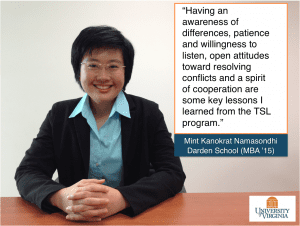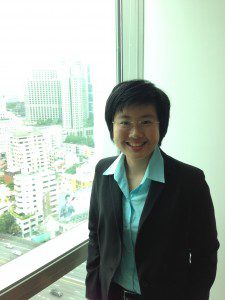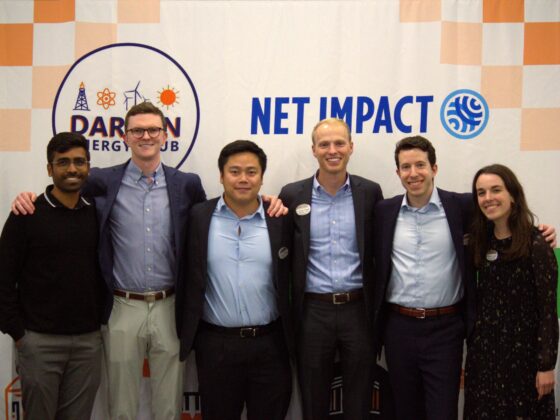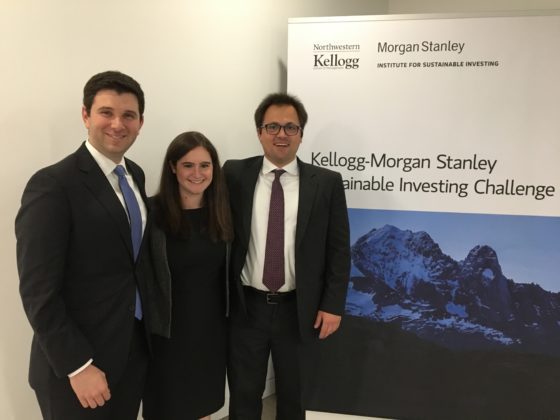 What do some of our world’s most complex problems have in common? (Think natural disaster relief or global climate change, for example). For starters, these types of challenges cannot be adequately addressed without engaging and collaborating across multiple sectors – government, business and non-profit – solving them, together. This means that today’s and tomorrow’s leaders need to understand how each of these sectors operate, and how to work with – and across – each of these spheres, to create value and have impact.
What do some of our world’s most complex problems have in common? (Think natural disaster relief or global climate change, for example). For starters, these types of challenges cannot be adequately addressed without engaging and collaborating across multiple sectors – government, business and non-profit – solving them, together. This means that today’s and tomorrow’s leaders need to understand how each of these sectors operate, and how to work with – and across – each of these spheres, to create value and have impact.
That’s exactly the kind of thinking that led to the creation of the University of Virginia’s Tri-Sector Leadership Fellows (TSL) program.
The Tri-Sector Leadership Fellows program is a pan-university effort designed to explore effective, responsible leadership and the importance of multi-disciplinary perspective in decision-making. The program brings together prominent, high-impact leaders with competitively-selected graduate student fellows and faculty from UVA’s Darden School of Business, Frank Batten School of Leadership and Public Policy and School of Law for a series of informal conversations and interactive exchanges.
Within the fellowship, a series of accomplished leaders facilitate interactive discussions, based on their own personal leadership experiences, with the students. Through their interactions, the fellows gain first-hand insights into how these leaders holistically and critically analyze complex policy and practical considerations. Together, the speakers and students examine relevant “Tri-Sector” (public, private and social sector) issues, which involve a host of complex financial, economic, political and legal considerations.
The TSL program is administered by the Institute for Business in Society and facilitated by faculty across all three schools.
Each year, the fellowship selects eight students from each of the three schools. Now in its second year, the TSL program has 24 former fellows who are working within business, law, public policy, government and politics, education and the non-profit sectors. We recently interviewed one former Darden School fellow, Mint Kanokrat Namasondhi, to find out more about her current role within the banking industry.
Can you describe your current title and position? What is the nature of your work?
I work as a senior officer in corporate banking at Krung Thai Bank PCL, the largest lender by assets and deposits in Thailand (as of Q1, 2015). My role is to take care of logistics and hospitality for large corporations such as shipping companies, airlines and hotels that are listed in The Stock Exchange of Thailand.
My work requires both quantitative proficiency – such as financial analysis and financial modeling – and people skills when it comes to working with clients, legal firms and internal departments. In addition to understanding the clients, I also need to spot opportunities, design integrated and customized financial solutions, analyze credit, assess and mitigate risks and offer impressive experiences for the clients.
Is there such a thing as a “typical” work day in your current role? Can you describe some of the activities you might do, decisions you might make and issues you might encounter?
For me, every day is about problem solving – problems of various topics, with several parties.
- For the clients: to structure customized financial solutions, offer high-quality advice and fulfill their requests.
- For the bank: to assess risks, design risk-mitigation methods and weigh returns of each deal to decide whether the bank shall “accept” or “reject” that deal.
- For related parties: to find the best resolutions acceptable for all major parties – such as clients, bankers, the risk committee and legal advisors. These groups normally have different, or even conflicting, points of view and interests, so the goal is to ensure that all parties can move forward with the deal together.

Can you describe an instance or example when you used skills or lessons learned from the TSL program within your new role?
The success of my new role depends on working with many parties with different viewpoints, interests, and perspectives. When groups or individuals make assumptions or have negative attitudes, this can create hindrances to working together.
For example, at the bank, the checks and balances system unintentionally cultivates negative stereotypical images that the client owners and the risk teams have towards each other. Some client owners might think that the risk teams would look for risk-free deals and turn down almost all the deals; while the risk teams might think that the client owners would put forth huge effort to convince the committee and get the deals approved, regardless of the risk levels. Both parties usually think that it is impossible for them to work together. But in fact, both parties can collaborate while still checking and balancing each other in order to benefit the bank and the clients.
Nowadays, more people from both sides have already realized the benefits of working together, instead of against each other. However, not everyone can convince those who still want to work against each other that the benefits of cooperation are greater for everyone involved.
Having an awareness of differences, patience and willingness to listen, open attitudes towards resolving conflicts and a spirit of cooperation are some key lessons I learned from the TSL program. These lessons enable me to anticipate and avoid stereotype-related challenges and foster an atmosphere of understanding and possibility. I try to achieve this by building alliances, demonstrating how collaboration works and benefits everyone, and inviting more and more people to join us.
“Although TSL program mainly focuses on the intersection of business, law and public policy, the lessons and experience you will learn are life-changing and lifelong.”
What are some of the major challenges our world currently faces, and what do you feel is the value of today’s leaders having Tri-Sector knowledge and experience in helping to address those challenges?
I think having a mindset that is prone to believing stereotypes and thinking certain tasks are impossible are major challenges for our world. Theses challenges separate people with “conceptual prisons” and block people’s creativity. They discourage people from making an effort to at least try to use their brainpower and think about the problems they are facing. They push people to work alone, head in different directions and later conflict with other people.
Tri-Sector knowledge will help today’s leaders deal with these challenges. It reminds leaders to be aware of their potential biases, to be tolerant and open to differences and to believe in the possibility of working together with so-called “conflicting” stakeholders. This knowledge helps tear down separation and misunderstanding, promote synergy and bring people in your community and society to the next level together. This knowledge is what the majority of people lack, forget, or pay little attention to.

What advice would you give to future Tri-Sector Leadership Fellows entering the program?
In thinking of advice I would give to future TSL fellows, I am reminded of a Zen story in Robin S. Sharma’s book, The Monk Who Sold His Ferrari, which advises: “Empty the water in your glass, and you will surprisingly find so much more possibility in your life.” Just like an overflowing cup of tea, most people are too full of their own knowledge, ideas and beliefs to open themselves up and learn new perspectives in life. To empty the water in your glass is, therefore, to let go of what you think you know and open yourself to new possibilities which you have never thought about.
Although TSL program mainly focuses on the intersection of business, law and public policy, the lessons and experience you will learn are life-changing and lifelong. The world is different and diverse, not only in terms of languages and cultures, but also in terms of thoughts, politics, business, lifestyles, beliefs, responsibility, interests, and so on. The more this world becomes complex, the more the TSL program becomes valuable to you, to those who know you and to those who work with you.
For more information about the Tri-Sector Leadership Fellows program, visit the Institute for Business in Society’s website.





